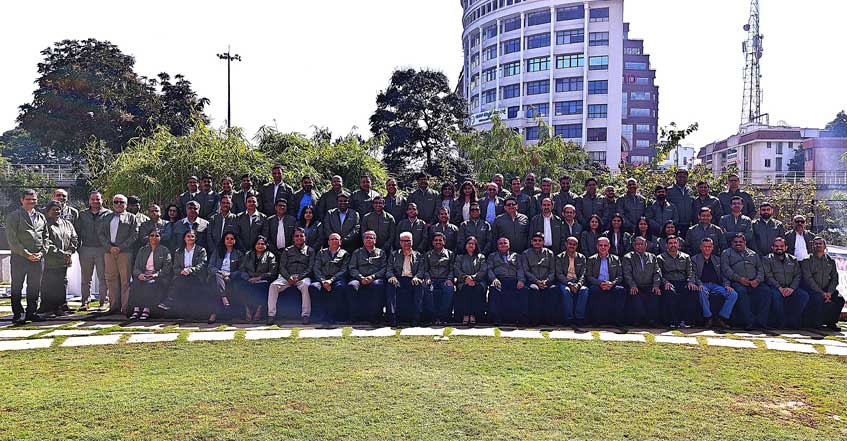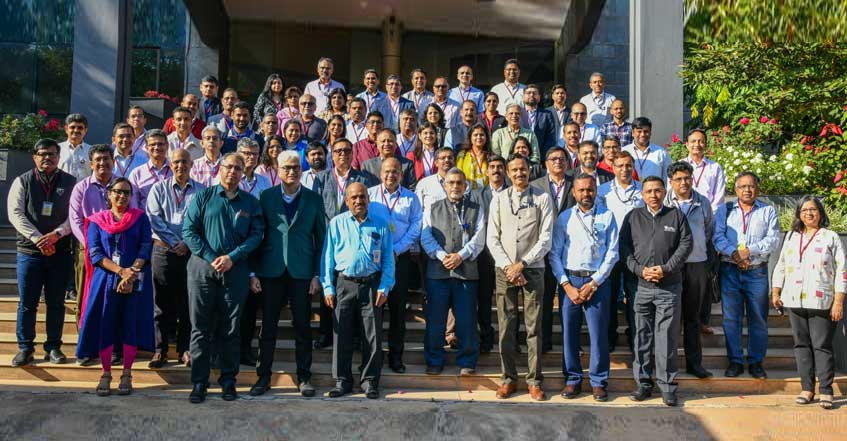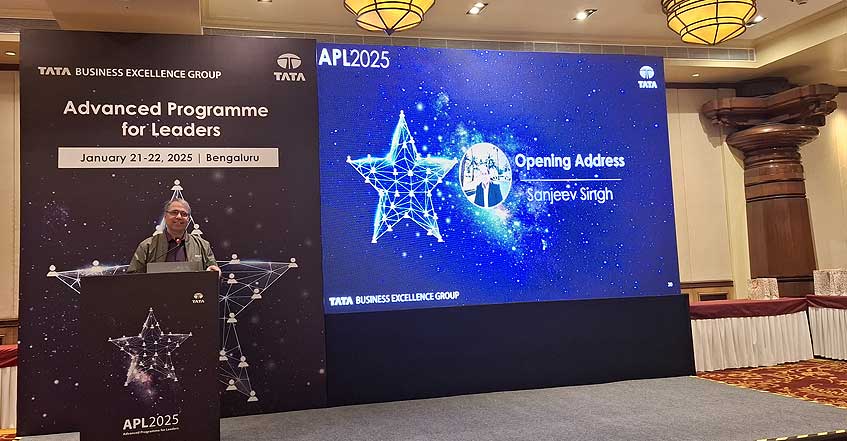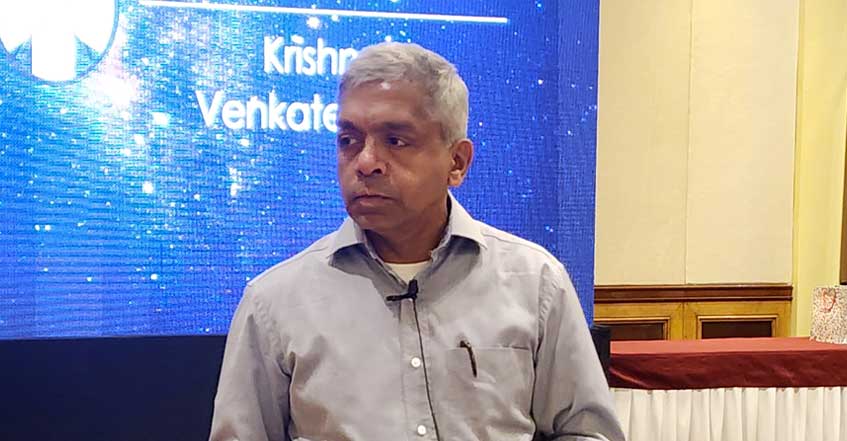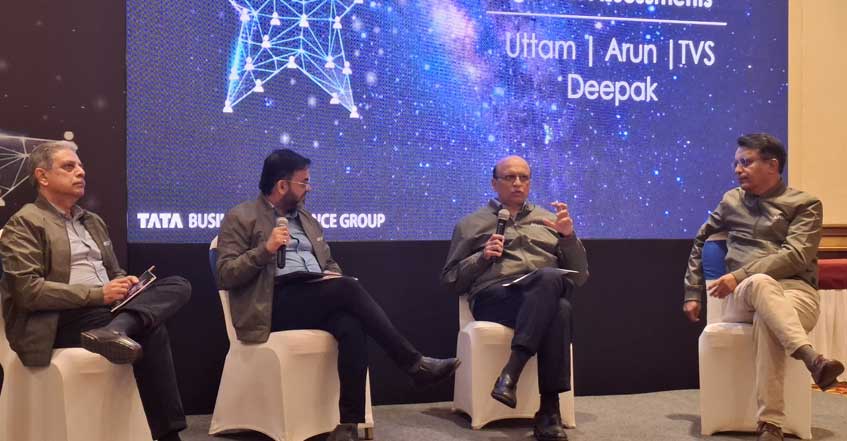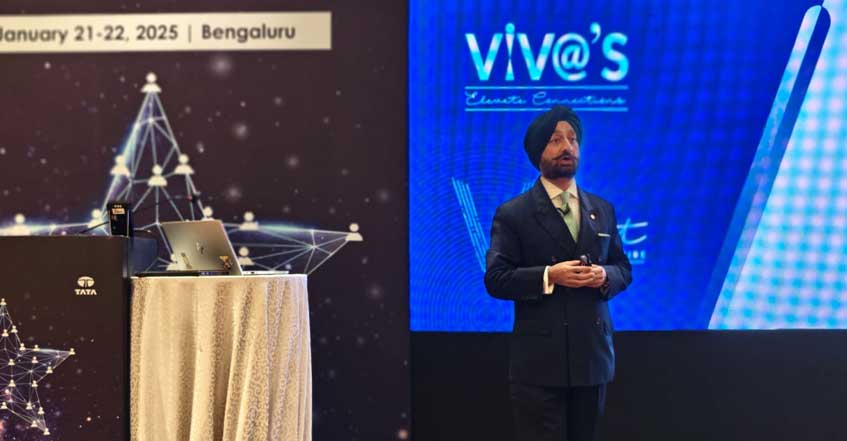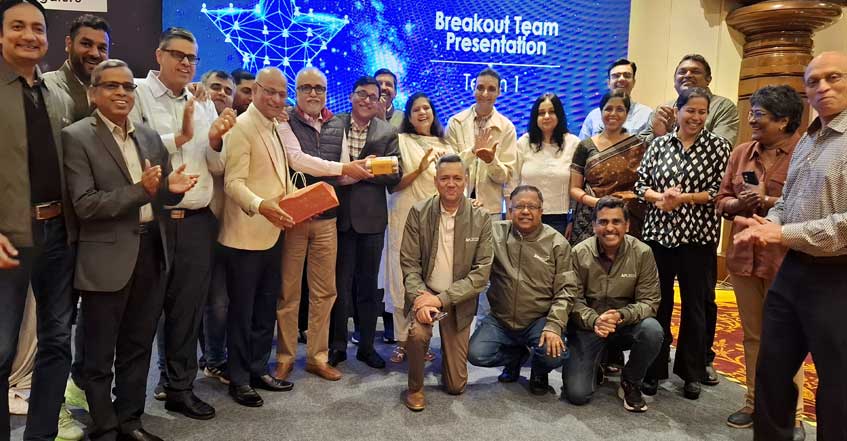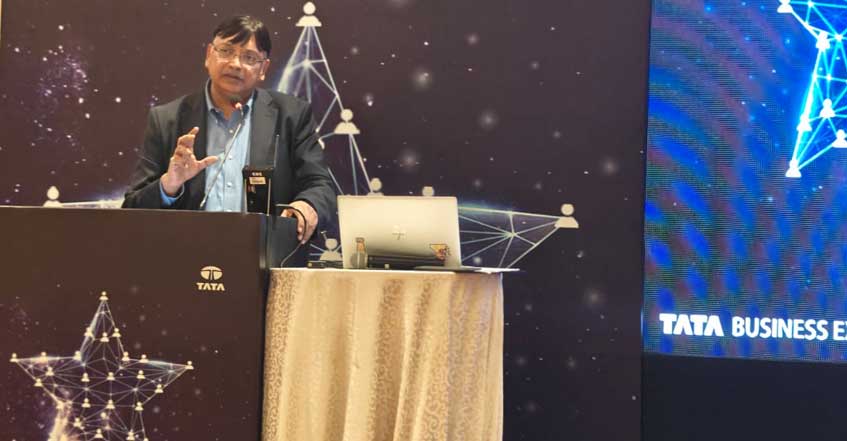Published on January 24, 2025
The annual Advanced Programme for Leaders 2025 (APL2025) brought together a diverse group of senior leaders, including Team Leaders, Deputy Team Leaders, and Process Consultants from across the Tata group to strategise and prepare for the BE Assessment cycle 2025. Organised by Tata Business Excellence Group (TBExG), the programme was held on January 20-22, 2025, at Taj MG Road in Bengaluru, and served as a platform to delve deeper into TBEM 2.0 framework, and seeking inputs for sharpening the BE assessment process. Forty-six participants from 20+ Group companies attended the APL2025. With a focus on engagement, reflection, and actionable insights, the event offered participants rich learning opportunities.
Day 0
The APL2025 started with a visit to the Indian Space Research Organisation (ISRO) Headquarters, Antariksh Bhavan, Bengaluru. During the learning mission, the participants understood ISRO’s commitment to science, engineering, and technology to harvest the benefits of outer space. The participants were addressed by M. Sankaran, Director of U R Rao Satellite Centre (URSC) and a distinguished Scientist of ISRO. He deliberated on the contribution of the URSC in launching various communication, meteorological, remote sensing and navigation satellites. He elaborated on how sectors like agriculture, water resources, urban planning, land use, fisheries, and oceanography are benefitting from these launches. A knowledge-sharing session with several directors and project directors concluded the visit.
Day 1
Day one commenced with Alok Shahapurkar, DGM, TBExG, setting the context and welcoming the first-time participants to the programme. Sanjeev Singh, Vice President & Head, TBExG, in his opening remarks, reflected on the 30-year journey of excellence, which has helped bring all the Tata companies together. Crediting the feedback from past APL programmes for strengthening the BE Assessment process, he mentioned key changes like the introduction of TBEM2.0, the addition of analyst panels, the creation of SME forums, enhancing the quality of Board presentations, and more. He also thanked the BE assessor community for strengthening the rigour of the process. Sanjeev’s remarks set an inspiring tone for the day.
Next up, Subhrajit Basu, General Manager, TBExG, highlighted the achievements of the past year and the feedback received from various stakeholders. While the year was high in complexity with companies at different levels and expectations, Subhrajit mentioned that the TBExG team focussed on operationalising TBEM2.0 and supporting the assessors in enhancing the rigour of the assessment process. He then shared the quantitative and qualitative feedback for the assessment process from CEOs, Mentors, BE Heads, Team Leaders and Deputy Team Leaders. He elaborated on the areas related to the input that needed improvement, such as increased calibration with BEHs, timely availability of Action Taken Report, and key results enhancing category lead capability, among others.
This was followed by a session by Sayantan Roy, General Manager, TBExG, throwing light on the progress made with the updated TBEM2.0 framework and the key changes for the year. Through his presentation, Sayantan detailed how assessors and companies have accepted the TBEM2.0 category-level changes and how they were integrated into the final feedback presentation. He also outlined the key changes to the TBEM framework 2025-26, including adding Cybersecurity as a separate category, customer value propositions, leveraging primary and secondary data, customer engagement across the lifecycle and scaling up data and digital initiatives such as GenAI ML models.
The APL2025 agenda was designed to enable leaders to share their experiences and suggestions for improvement. Krishnan Venkateswaran, Chief Digital Officer, Titan, highlighted how to evaluate the maturity of data, analytics, and AI processes. Using examples from within the company, Krishnan stressed the importance of aligning digital strategy with business strategy and introduced dividing organisational processes into ‘left brain’ (operational, data-driven, automated tasks) and ‘right brain’ (creative, branding and design). He stressed the need for robust data culture, simple and actionable dashboards, and leveraging AI to enhance decision-making and hyperlocal customisation.
The next session was by Abhijit Nanoti, MD, Jamshedpur Continuous Annealing and Processing Company (JCAPCPL), during which he detailed how he led the team in conducting an integrated assessment that included the areas of business, data, and cyber excellence. Abhijit deliberated on how the team prepared for the integrated assessment and the process changes that may help facilitate such an assessment in the upcoming cycle.
The afternoon featured a dynamic panel discussion moderated by Deepak Deshpande, Vice President, TBExG, with panellists Arun Varma, Head - Strategy & Special Initiatives, Public Services, TCS; Uttam Soni, Head - BE, Safety & L&D, Tata Capital; and TVS Shenoy, Executive in Charge (Bearings), Tata Steel. The panel highlighted the areas of enhancement, including company preparation, team commitment, team dynamics, managing stakeholders, and final feedback presentation that may enhance rigour in the process.
Tarun George, CEO, Tata Insights & Quants, then elaborated on how his team conducted an Enterprise + BU assessment. Tarun talked about how the team managed multiple considerations, such as being a first-time participating company, a highly technical industry, and having a predefined assessment scope. He also gave tips for teams to provide actionable feedback and highlighted areas of consideration for the team leaders leading similar assessments.
In the next session, S Sambasivam, former Managing Partner, Tata Consultancy Services, and Harshad Mengle, Chief Information Security Officer, Tata Chemicals, helped the participants understand the anatomy of an advanced cyberattack and gave examples of guardrails being put in several organisations to prevent attacks. They also emphasised the areas the team leaders should focus on while assessing the new cyber excellence category during BE assessments.
In the next session, the subject of ‘Business Insighting’ was introduced by Rahul Singh, Chief Investment Officer - Equities, Tata Mutual Fund, and Nalin Ladiwala, Senior Fund Manager - Equity, Tata AIA Life Insurance. They provided guidelines for translating organisational and industry data and information into actionable business insights to help the assessment process. The speakers emphasised that creating business value requires balancing growth, profit margins, and return on invested capital (ROIC).
The day concluded with a reflective summary by Madhu Chaithanya, Senior Manager, TBExG, who captured the essence of the day’s learnings. Vibhuti Shah, Senior Manager, TBExG, and Abhishek Kar, Deputy Head - Technology, mjunction, facilitated an unwinding ‘Beyond Business’ session for all the participants.
Day 2
Madhu welcomed the participants and set the context for the Day 2 sessions. The opening session was invigorating on the topic of customer experience management with Taljinder Singh, Senior Vice President and Brand Custodian, IHCL. In addition to insights on IHCL’s customer-centricity framework, his session highlighted nuances of brand creation and management aligned with the company's strategic objectives.
Breakout team presentations followed, with Ratul Neogi, Head - Internal Audit & BE, Trent, sharing inputs on ‘Changes in the assessment process to assess organisations of various maturity and size’; Bhavin Shukla, Strategy Office Lead, OTON, Tata Consultancy Services, deliberating on ‘Leveraging facts and data in the final feedback presentation’; and Dr. Richard Lobo, Global Head - Innovation, R&D, CQH & Chief Ethics, Tata Chemicals, emphasising on the need for ‘Team preparation before the site visit in BE assessments’.
In the last session of the day, Peeyush Gupta, Vice President - TQM, Group Strategic Procurement & Supply Chain, Tata Steel, addressed the gathering of emerging expectations from team leaders and process consultants. He shared various examples to convey the importance of the Team Leader and Process Consultant roles for the success of the assessment process. He also emphasised the importance of calibrating the stakeholders' expectations at every phase of the assessment process.
Sayantan concluded the programme with a vote of thanks, acknowledging the engaged participants, expert speakers and partners. He confirmed that the APL enabled enormous learning and sharing, and the takeaways from the session are invaluable in initiating the key changes in the following assessment cycle.



